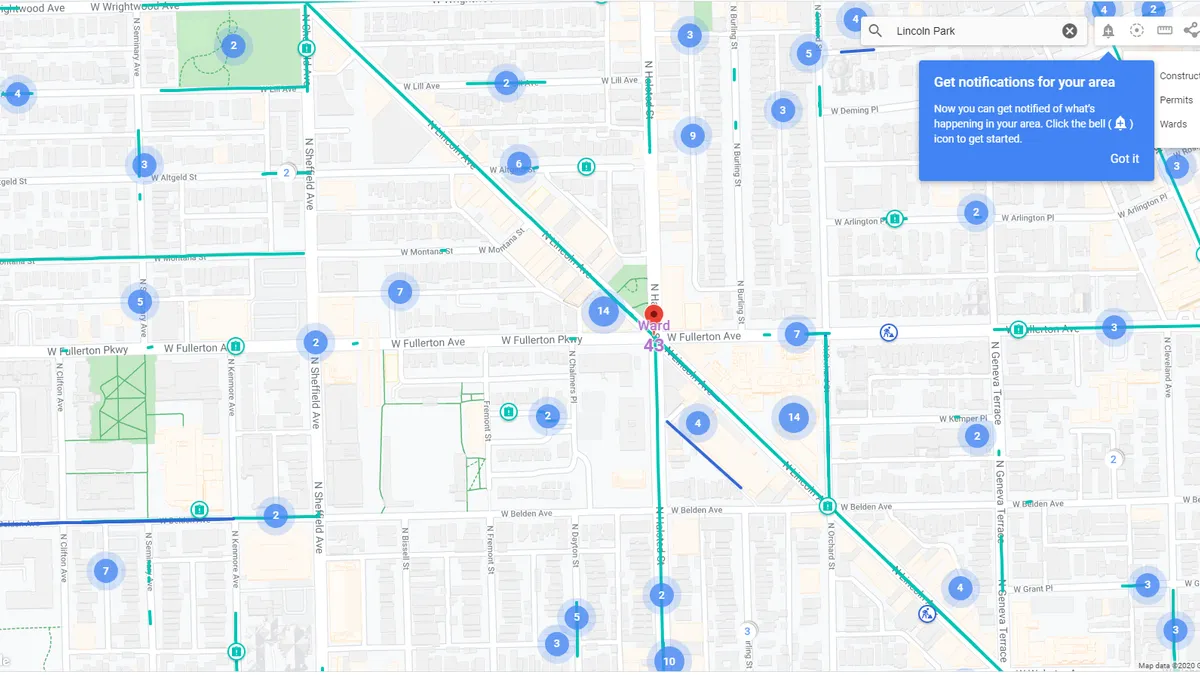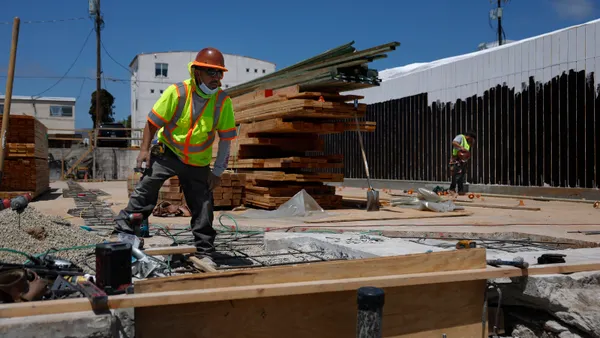UPDATED, March 11, 2020: The Chicago Department of Transportation (CDOT) has leveraged Google Cloud technology to add a subscription feature to its ChiStreetWork platform, which will enable residents to better track construction work and event permits in their neighborhoods.
The update allows residents to subscribe for information and customized alerts within a specific boundary.
"With ChiStreetWork, the CDOT has been able to cut down on calls made to the office, freeing up resources and, at the same time, providing much greater transparency to its citizens," Todd Schroeder, director of public sector digital strategy at Google Cloud, wrote in a blog post.
Dive Brief:
- The Chicago Department of Transportation (CDOT) has unveiled ChiStreetWork, an online portal to inform the public about current construction and road repair projects, newly resurfaced streets and special event permit information.
- The tool uses the Google Maps platform to display infrastructure upgrades, construction projects, paving information and special event information. Users can search by neighborhood, intersection or street address and receive data from one month prior, the current day and up to one year in the future. Clicking on an active project will display information including a CDOT permit, street name, work hours, lane closures and parking restrictions.
- ChiStreetWork displays information from the city's dotMaps system for tracking construction activity, which previously only was available internally for CDOT staff, utilities and aldermanic offices, but not to the public. The website complements the city's publicly-facing Open Data Portal.
Dive Insight:
ChiStreetWork is intended to help citizens know about projects that could affect their daily lives, especially their mobility. The information allows people to plan detours in advance of road paving or a special event, rather than encountering lane closures suddenly and getting caught in traffic. The map also shows data that helps users navigate traffic impediments such as bus routes and stops, bike lanes and current traffic conditions.
The tool also increases accountability. Citizens can check on the progress of projects they have been promised and contact the appropriate city staff or leaders if progress appears to have stalled. Users can also check if work already is planned for a certain street before contacting 311 to put in a work request.
The website is Chicago's latest move in its push for data transparency. Earlier this month the city started publishing ride-hailing data on its Open Data Portal, following a trend of cities providing more public access to the data they collect, which ultimately helps to build trust. New York, Honolulu and Nashville, TN are among the cities that have some type of citizen-facing dashboards to display portions of the collected information.













